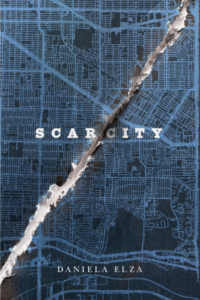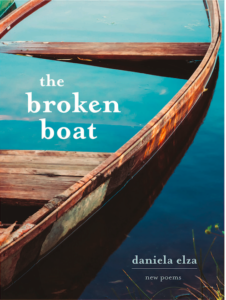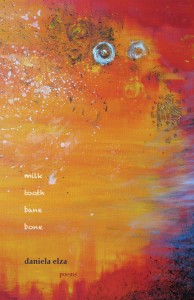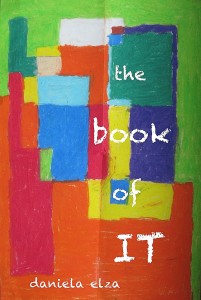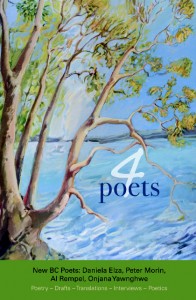the ecology of the personal and professional experience
Posted by Daniela Elza on Apr 13 2008
I happened “serendipitously” upon Arts-Based Research in Education: Foundations for Practice, edited by Melisa Cahnmann-Taylor and Richard Siegesmund (2008). I am becoming more and more convinced that this type of “serendipitously” is just they way things work. Not out of the ordinary, but the ordinary. Maybe all it takes is a mind on the look out.
When I opened to the section To dwell in possibility: Poetry and educational inquiry, who should I see but Carl Leggo from UBC. In a piece called The Ecology of the personal and Professional Experience: A poet’s view.
I have a lot of favorite parts but one that resonates with some thoughts I have been mulling over recently is:
“In order to know the possibilities for our unique presence in the world, we need to be connected to words that represent as well as challenge our daily understanding of who we are and who we are becoming. We need to know our stories before we can attend to the stories of others with respect and care. Education is a process of becoming in the world, a process of becoming in language and discourse.”
This view allows education to exist outside of the institution. As a way in the world.
Which goes along with, I think, the Socratic idea of taking care of your soul everyday.
If you take care of your soul/self and know how to, you can take care of others’. If we know how to play, and the pleasure of it, we can and will allow/involve others in the play. What better role for the educator? What makes these words more powerful to me is knowing and seeing Carl himself practicing what he is writing about. And we need to practice that everyday in such a way that it is contagious.
So maybe you can ask yourself today: how sharply you distinguish between your personal and your professional experience? Can you? And if you do, what does that do for your personal growth?
If it is hard to ask that of yourself, start by asking someone else? I guess that may end up creating more of a conversation:-).
In another piece Between Poetry and Anthropology Ruth Behar talks about bringing the poetic into anthropology, “poetry—not just the literal writing of poems, but the larger desire to speak from a deeper part of the self.”
She goes on to ask “what does it mean to be a poetic anthropologist?”
“I can tell you what it has meant for me. It has meant allowing myself to experience the emotionally wrenching ways in which we attain knowledge of others and ourselves. In my ethnographic writing, I have made the case that the most charged intellectual insights occur precisely when one’s ethnographic work and one’s life crash into each other in a head-on collision, even though every effort has been made to keep them running smoothly in their own lanes.”
She also says that the first step to the making of a community is recognizing each other’s humanity. For me that can work on many levels. Between I and thou, two people who think they do not have much in common. Between you now, and you then. Between you personally and you professionally. Between. . . you can add your own betweens here.
I think as educators, as parents, and humans, we need to engage our students in such ways. No, we Must, engage our students in such ways in order to let them see, “the possibilities for [their] unique presence in the world.” (C. Leggo). But first we need to know the good of it. We need to practice that ourselves.
